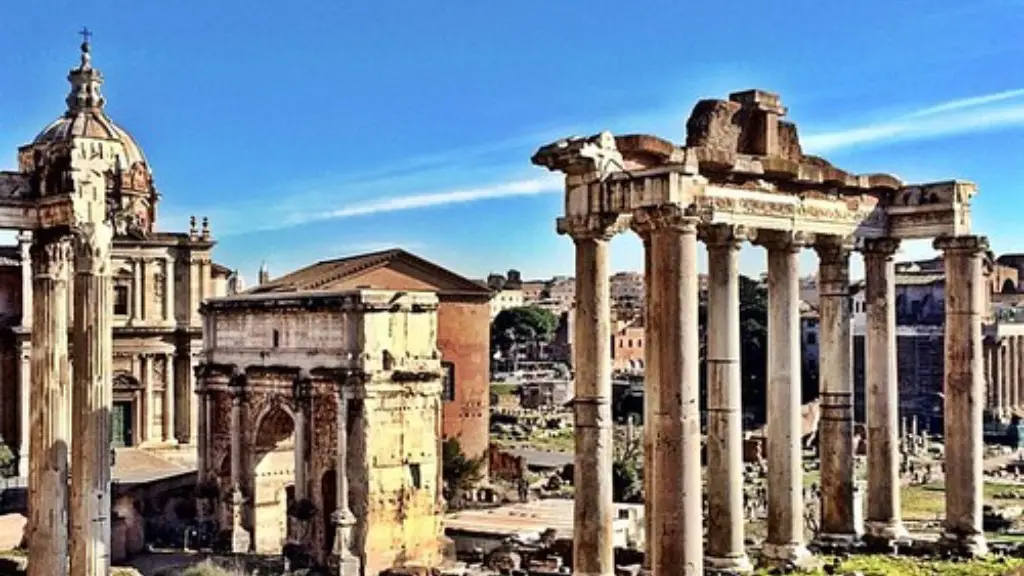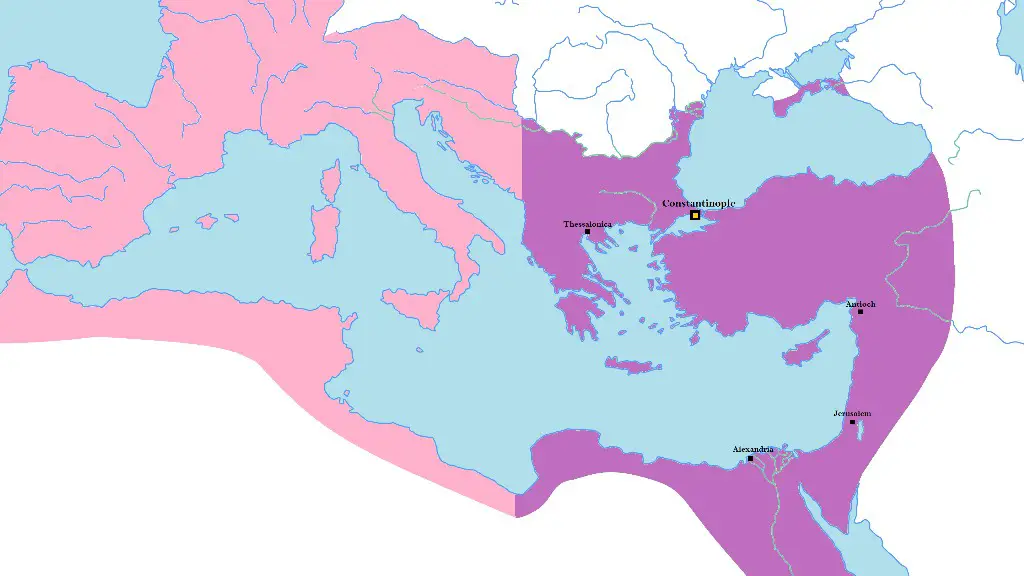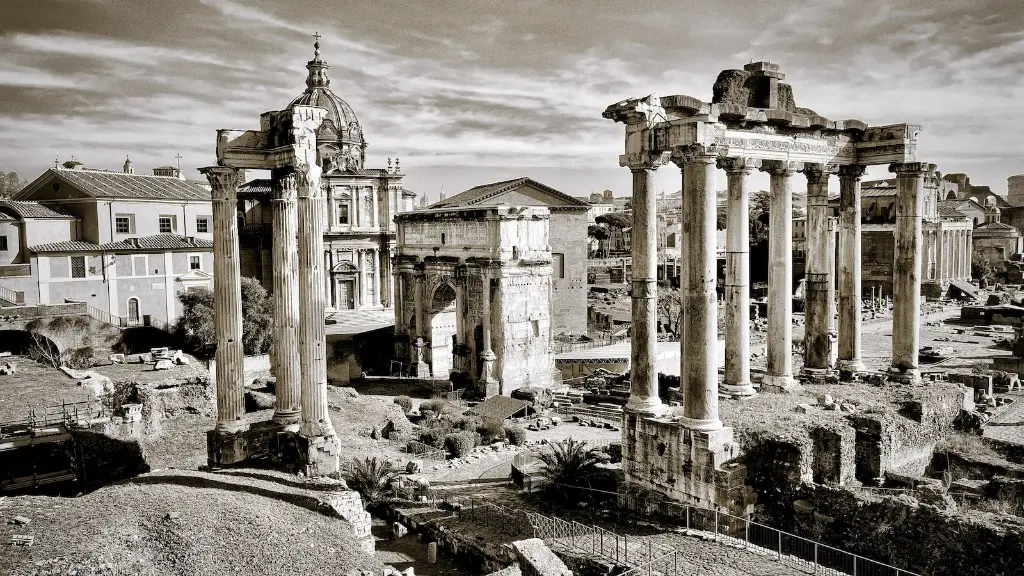Sometimes called Marcus Antonius in Latin, Mark Antony was a close friend and ally of Julius Caesar who then went on to become one of the key members of the Second Triumvirate. Up until the death of Julius Caesar, Antony was a lower ranked Roman Patrician and part of the Populares Faction. Antony rose to fame after Julius Caesar’s death and is credited with significantly influencing the fate of Ancient Rome.
After the death of Julius Caesar, Antony sought to avenge his slain friend an ally, joining forces with Octavian, Marcus Aemilus Lepidus, and Cicero with the intention of overthrowing the conspirators. The Senate saw this union as a threat to their power and targeted the group by granting armed forces to the Triumvirs. Antony, Octavian, and Leepidus then formed the Second Triumvirate, ruling over the Roman Empire. Despite internal squabbling and several wars, Antony sought to maintain peace amongst Roman citizens, granting exemptions to those loyal to Julius Caesar.
Antony’s rise to power came with a number of notable military victories, leading him to pursue more political power. He sought to spread the influence of the Triumvirate through a number of political strategies, issuing laws and decrees to the Roman senate. His primary goal was to improve the conditions for Roman citizens and restore the Republic’s original ruling principles. During Marc Antony’s tenure, he issued visas for new citizens, granted divorces to female Roman citizens, and designed new processes for legal disputes. He continued to serve as a leader in the Republic throughout the Second Triumvirate, unsuccessfully challenging Octavian for sole control in 31 B.C.
In the years before Antony’s death, he engaged in a passionate affair with Cleopatra, a renowned Egyptian Pharaoh, who ultimately was responsible for Antony’s downfall. Despite their many successes, Antony’s relationship with Cleopatra only served to diminish Rome’s power and progress. Antony was eventually arrested and brought to trial, where a series of false allegations were raised against him to try to incriminate him. Ultimately, Antony was sentenced to death, but committed suicide rather than face execution.
Since then, Mark Antony has been remembered in Roman and European history as an influential leader who helped shape the future of Ancient Rome. He is often seen as a tragic hero, who, despite his successes, was ultimately brought down by the force of his own passion and his loyalty to the ones he loved. Antony’s influence in Ancient Rome was immense and his spirit still lives in the Republic’s history today.
Context and Historical Significance
Mark Antony played an important role in the decline of the Roman Republic. He was a close friend and trusted ally of Julius Caesar and one of the four members of the Second Triumvirate, which formed a powerful alliance that ruled over Ancient Rome. During his tenure as a Roman leader, Antony issued a number of laws and decrees, helped restore the Republic’s original ruling principles, and fought in several military victories. Despite his successes, his burgeoning relationship with Cleopatra led to his downfall, culminating in his arrest and eventual suicide.
Historically, Mark Antony was a controversial figure in Rome. While some lauded his contributions to the Republic, others decried him for his extramarital relationships and disregard for justice. Despite this, Antony’s accomplishments and influence on Ancient Rome have been widely recognized, making him a significant figure in Roman and European history. He is remembered today as a loyal ally, committed leader, and a tragic hero, who was ultimately brought down by his own passion and desire for power.
Effect on Future Generations
The impact of Mark Antony’s influence can still be felt in modern society today. His loyalty to friends and allies, his commitment to justice and stability, and his willingness to fight for what he believed in have all been widely praised, and his principles continue to serve as inspiration for future generations. Additionally, Antony’s selfless acts of mercy, such as granting visas to new citizens and helping restore the Republic’s original ruling principles, are often overlooked but serve as a reminder of his commitment to Rome and the people.
During Antony’s reign, he also advocated for the underprivileged, a sentiment that continues to be celebrated today. The death of Julius Caesar had left a void of leadership within Rome, but with Antony’s help, Rome regained a strong leader who was committed not only to advancing the Republic but also to protecting its citizens. As an example to future political leaders, Antony stands out as a leader who was able to lead a nation towards a prosperous future, which has allowed for Rome’s continued strength today.
Social Impact
Antony’s actions as a leader have had a lasting social impact on society today. His willingness to stand up for justice and protect the rights of the Roman people left a strong impression on the citizens of Rome and beyond. Additionally, Antony’s refusal to back down in the face of adversity made him a highly respected figure among the Roman people. He was known as a strong opponent to tyrants, oppressors, and anyone who sought to take advantage of others, and his legacy continues to serve as an example of what it means to be a powerful and just leader.
Antony also made significant strides in advancing the rights of women. During his time as a leader, he granted divorces to female citizens, recognized their citizenship, and protected their rights. This was remarkable in a time when women were often overlooked and their opinions disregarded. Antony’s willingness to recognize and fight for the rights of all Roman citizens, regardless of their gender, demonstrates his commitment to justice and equality, a principle that still holds strong in modern society today.
Legacy
Mark Antony’s legacy continues to live on in the history of Rome and Europe today. His commitment to the Republic, his willingness to fight for justice, and his passion for protecting the rights of the people are highly celebrated principles and great sources of inspiration. Additionally, Antony’s tragedies serve as a reminder of the power of passion and a necessary reminder of the consequences that can arise from it. Today, Antony is remembered as an influential leader, a loyal friend, and a beloved figure within the Roman Republic.



